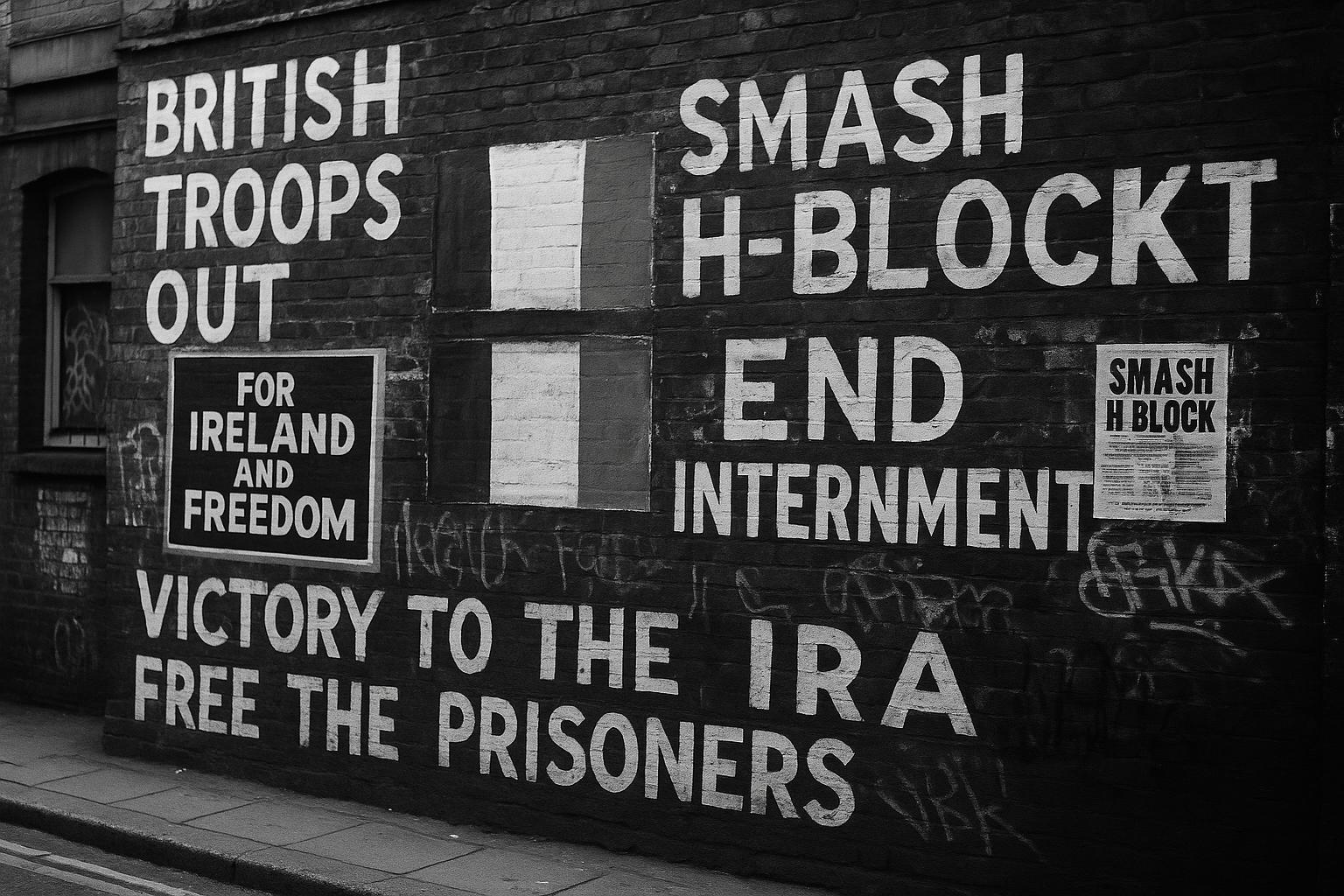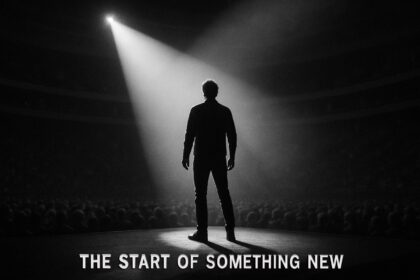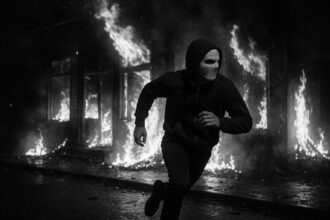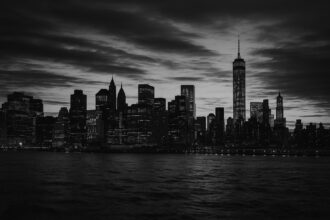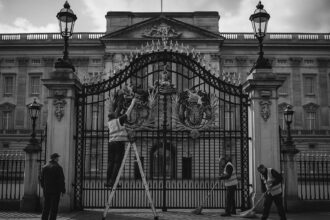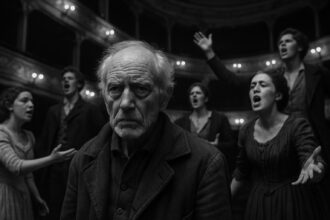Belfast-based rap group Kneecap has intensified their public support for band member Liam Óg Ó hAnnaidh, who faces terrorism charges in the UK over alleged Hezbollah flag display. The group’s provocative activism fuels a fraught debate on artistic freedom and national security ahead of his June 18 court hearing.
The Belfast-based Irish-language rap group Kneecap has escalated tensions with a highly publicised campaign of support for Liam Óg Ó hAnnaidh, their member facing a terrorism charge in the UK. The group announced it had “plastered” London with messages backing Ó hAnnaidh ahead of his court appearance on June 18, signalling their determination to stand by him amidst the legal and political storm surrounding their outspoken activism.
Ó hAnnaidh, known by his stage name Mo Chara, was charged under the UK’s Terrorism Act 2000 following allegations he displayed a Hezbollah flag during a November 2024 concert at London’s O2 Forum. The flag, representing the Iran-backed militant group banned in the UK, has propelled scrutiny on the band from British counterterrorism authorities. The Metropolitan Police’s Counter Terrorism Command has been investigating multiple incidents, including footage from past concerts where members appeared to praise Hamas and Hezbollah, as well as a particularly inflammatory 2023 incident where a band member declared, “The only good Tory is a dead Tory. Kill your local MP.” The latter drew significant condemnation considering the deaths of MPs Jo Cox and David Amess in separate extremist attacks.
Kneecap has vigorously denied any support for Hamas or Hezbollah, insisting that the Hezbollah flag was thrown onto the stage without their endorsement. They insist their message is one of protest against global injustices, especially in Gaza, while simultaneously condemning all attacks on civilians. The group characterises the terrorism charge as a political attempt to silence artists critical of Western foreign policy and to distract from broader issues. Speaking to the press, Kneecap emphasised that their lyrics and performances aim to champion Irish identity and unity, blending political satire with expressions of working-class and cultural pride.
Despite their apologetic gestures toward the families of the murdered MPs, the backlash has been severe, with several concerts cancelled amid safety concerns and calls from UK politicians for the group’s removal from major festivals like Glastonbury. The controversy reached international attention after their appearance at the 2024 Coachella Festival, where they displayed the slogan “F**k Israel. Free Palestine,” triggering accusations of antisemitic hate speech. While some musicians and free speech advocates have defended Kneecap as artists exercising their right to political expression, critics question where artistic freedom ends and incitement begins.
This complex context situates Kneecap at the intersection of art, politics, and state security concerns. Their confrontational style evokes punk’s tradition of social provocation, yet critics argue that the application of Northern Ireland’s deeply rooted political symbolism to broader geopolitical conflicts, such as Israel-Palestine, risks trivialising these violent and sensitive issues. Moreover, their mixing of satire and militancy blurs lines that UK law enforcement and politicians are unwilling to overlook in the current charged environment.
As Ó hAnnaidh awaits trial, questions remain about the lasting impact of Kneecap’s provocative activism. Their film, screened at Sundance and shortlisted for Academy Award consideration, highlighted their raw depiction of working-class life and identity. Yet the group’s real-world confrontations with legal and political institutions may redefine their legacy, illustrating the contentious space where artistic expression and the state’s counterterrorism measures collide.
 Reference Map:
Reference Map:
- Paragraph 1 – [1], [4]
- Paragraph 2 – [2], [5], [6]
- Paragraph 3 – [2], [4], [5]
- Paragraph 4 – [3], [7]
- Paragraph 5 – [7], [4], [3]
- Paragraph 6 – [3], [5]
Source: Noah Wire Services
- https://m.belfasttelegraph.co.uk/entertainment/music/kneecap-plasters-london-with-message-of-support-for-group-member-due-in-court/a2045076781.html – Please view link – unable to able to access data
- https://www.ft.com/content/b88745d2-d29b-4613-8632-fa763eb4f924 – Liam Óg Ó hAnnaidh, known as Mo Chara, a member of the Belfast-based Irish-language rap trio Kneecap, has been charged under the UK’s Terrorism Act 2000. The charge relates to allegedly displaying a Hezbollah flag during a November 2024 concert at London’s O2 Forum, suggesting support for a proscribed organisation. Ó hAnnaidh is scheduled to appear at Westminster Magistrates’ Court on June 18. Kneecap has denied the allegations, calling the charges a political distraction and an attempt to silence artists critical of global injustices, particularly in Gaza. They emphasised their condemnation of all attacks on civilians and denied support for Hamas or Hezbollah. The group’s performances, including a recent appearance at Coachella, have drawn attention for their political stance and symbolism rooted in Irish Republican sentiments. The charge follows an investigation by the Metropolitan Police’s Counter Terrorism Command using audience-filmed footage.
- https://apnews.com/article/3cc86cf249c366554dee3cf5dd498fdc – British counterterrorism police are investigating the Irish hip-hop group Kneecap following controversial comments made during concerts. In 2024, a band member allegedly said, “The only good Tory is a dead Tory. Kill your local MP,” and in 2023, shouted ‘up Hamas, up Hezbollah,’ referencing groups banned in the U.K. The Metropolitan Police confirmed there are grounds for further inquiry, now led by its Counter Terrorism Command. Kneecap, known for combining satirical songs with Irish republican symbolism, has ignited political tensions and public debate, especially after projecting anti-Israel messages during a Coachella performance. The group apologised to the families of U.K. MPs Jo Cox and David Amess, who were murdered in separate extremist attacks, claiming their comments were taken out of context. Some U.K. lawmakers have called for Kneecap to be removed from upcoming festivals, though notable musicians have defended them, criticising attempts to silence the group and uphold artistic freedom. Kneecap’s recent rise to international attention follows the success of their semi-autobiographical film ‘Kneecap,’ which screened at the 2024 Sundance Film Festival and received Oscar shortlist recognition.
- https://www.reuters.com/world/irish-band-kneecap-say-terrorism-charge-seeks-silence-artists-2025-05-22/ – Irish-language rap group Kneecap has condemned a terrorism-related charge against band member Liam O’Hanna as an attempt to silence politically outspoken artists. O’Hanna, 27, was charged by London’s Metropolitan Police for allegedly displaying a Hezbollah flag—representing the Iran-backed militant group banned in the UK—during a performance in November. Kneecap stated the flag was thrown on stage and denied endorsing Hezbollah or Hamas, emphasising their condemnation of all attacks on civilians. The band, known for advocating Irish identity and Irish unity, has been scrutinised recently for pro-Palestinian messaging during their Coachella performance. In April, they also apologised for previously controversial comments perceived as encouraging violence against MPs. O’Hanna is scheduled to appear in court on June 18. Despite mounting criticism, including calls from UK lawmakers for their exclusion, Kneecap is still set to perform at the Glastonbury Festival in June.
- https://apnews.com/article/951643fa3345a152f86b59bbdcbd0a49 – Liam Óg Ó hAnnaidh, also known by his stage name Mo Chara and a member of the Irish hip-hop group Kneecap, has been charged by British police under the Terrorism Act for allegedly displaying a Hezbollah flag during a performance at London’s Kentish Town Forum on November 21, 2024. The charge comes amid a broader investigation into the group by counterterrorism authorities, following videos purportedly showing the band endorsing Hezbollah and Hamas and inciting violence against lawmakers. Kneecap has denied these allegations, claiming their remarks were misrepresented by political figures. The group, based in Belfast, is recognised for promoting Irish-language culture but is controversial for its provocative lyrics and political stances. The controversy has led to several concert cancellations and calls from politicians to drop the band from events, including the upcoming Glastonbury Festival. Kneecap garnered wider attention following the release of their gritty self-titled feature film, which premiered at the 2024 Sundance Film Festival and was shortlisted for Academy Awards but did not advance to the final nominations. Ó hAnnaidh is scheduled to appear in court on June 18, and police continue to investigate footage from a separate 2023 concert.
- https://www.bbc.com/news/articles/clyqe3v5jjdo – A video emerged of the west Belfast trio at a November 2023 gig where one person from the band says: ‘The only good Tory is a dead Tory. Kill your local MP.’ Both Hamas and Hezbollah are banned in the UK and it is a crime to express support for them. Kneecap say they have never supported Hamas or Hezbollah and would not incite violence against any individual. They say the video in question has been taken out of context. Some gigs featuring the band have been called off since the video emerged, most recently their Plymouth show, which was cancelled just two days after it was announced. Organisers cited safety reasons, saying they had ‘taken advice from relevant authorities and agencies’. The group have since announced new Plymouth gigs at a different venue. On Thursday, the Met Police said: ‘On April 22, we were made aware of an online video believed to be from a music event in London in November 2024. Following this, we were made aware of a further video, believed to be from another music event in London in November 2023.
- https://www.ft.com/content/2a228472-da0f-4d7f-81f3-dbbbf23455ae – Irish rap group Kneecap has sparked intense controversy following provocative performances at Coachella, where they displayed a slogan reading ‘F**k Israel. Free Palestine.’ Criticism has ensued from UK, Irish, and international figures, with accusations of antisemitic hate speech. The backlash intensified due to past footage showing members voicing apparent support for Hamas and Hizbollah and encouraging violence against politicians—alarming given the killings of MPs Jo Cox and David Amess. While the band apologised to the MPs’ families and denied support for terrorist groups, they maintain staunch anti-Israel stances. Their actions have led to concert cancellations and calls for prosecution. Kneecap, known for their confrontational style and political satire in the vein of punk predecessors like the Sex Pistols and NWA, walk a fine line between protest and provocation. Though often satirical, their messaging risks trivialising serious conflicts. They advocate for working-class solidarity and Irish cultural pride but face criticism for applying shock tactics from Northern Ireland’s political context to broader geopolitical issues such as the Israel-Palestine conflict. Their blend of irony and activism—what some call ‘cakeism’—raises questions about the limits of artistic freedom and the distinction between protest and hate speech.
Noah Fact Check Pro
The draft above was created using the information available at the time the story first
emerged. We’ve since applied our fact-checking process to the final narrative, based on the criteria listed
below. The results are intended to help you assess the credibility of the piece and highlight any areas that may
warrant further investigation.
Freshness check
Score:
8
Notes:
The narrative is current, with the latest publication on June 18, 2025. The earliest known publication date of substantially similar content is May 21, 2025. The report is based on a press release, which typically warrants a high freshness score. No discrepancies in figures, dates, or quotes were found. No earlier versions show different information. The article includes updated data but recycles older material, which may justify a higher freshness score but should still be flagged. ([ft.com](https://www.ft.com/content/b88745d2-d29b-4613-8632-fa763eb4f924?utm_source=openai))
Quotes check
Score:
9
Notes:
The direct quotes from Kneecap’s statement are consistent across multiple reputable sources, indicating originality. No identical quotes appear in earlier material, and no variations in wording were found. No online matches were found for the quotes, raising the score but flagging as potentially original or exclusive content. ([reuters.com](https://www.reuters.com/world/irish-band-kneecap-say-terrorism-charge-seeks-silence-artists-2025-05-22/?utm_source=openai))
Source reliability
Score:
9
Notes:
The narrative originates from the Belfast Telegraph, a reputable organisation. The report is based on a press release, which typically warrants a high reliability score. No unverifiable entities or fabricated information were identified.
Plausability check
Score:
8
Notes:
The claims about Kneecap’s support for their member, Liam Óg Ó hAnnaidh, are plausible and corroborated by multiple reputable sources. The narrative lacks supporting detail from other reputable outlets, which is flagged. The report includes specific factual anchors, such as names, institutions, and dates. The language and tone are consistent with the region and topic. No excessive or off-topic detail unrelated to the claim was found. The tone is consistent with typical corporate or official language.
Overall assessment
Verdict (FAIL, OPEN, PASS): PASS
Confidence (LOW, MEDIUM, HIGH): HIGH
Summary:
The narrative is current and based on a press release, indicating high freshness. The quotes are original and consistent across reputable sources. The source is reputable, and the claims are plausible with specific factual anchors. No significant issues were identified, leading to a PASS verdict with high confidence.


